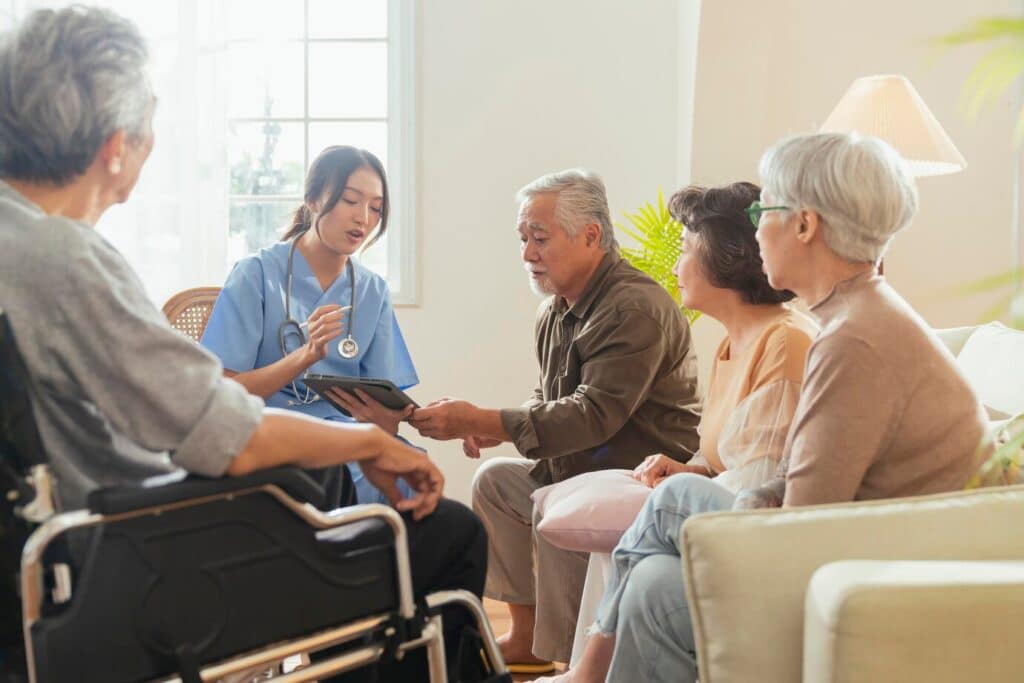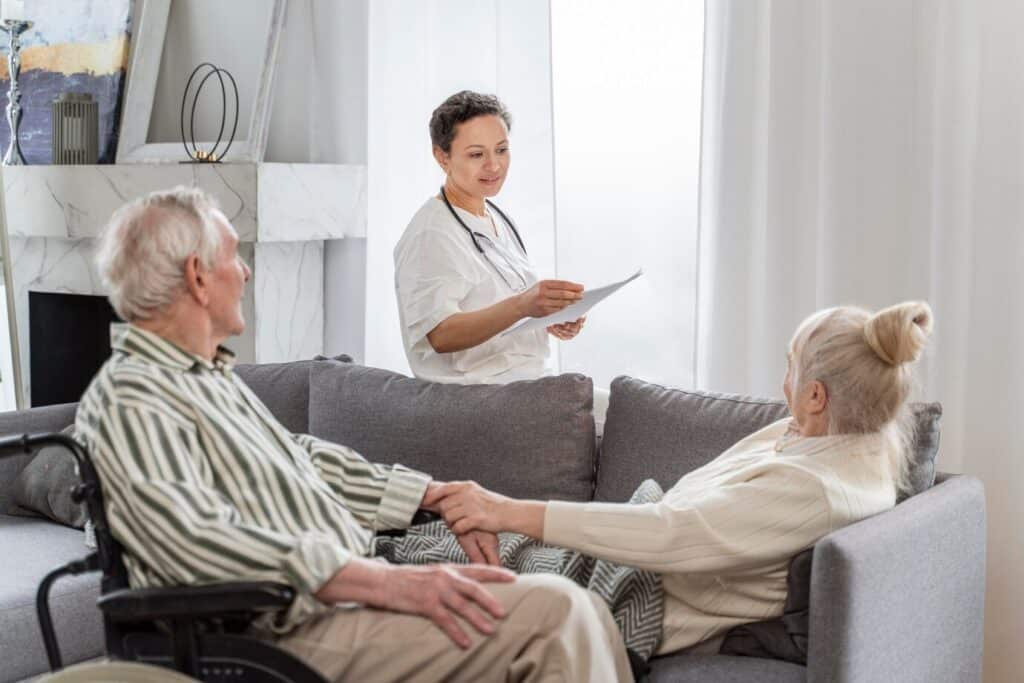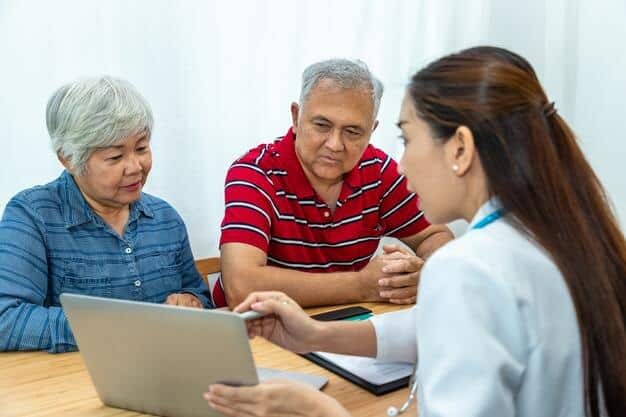As you navigate the complex world of healthcare, have you ever stopped to think about how well you understand the information being presented? The ability to find, understand, and use health information is crucial for making informed decisions about your health, and precisely this ability defines health literacy. According to the Centers for Disease Control and Prevention (CDC), Understanding Health Literacy is vital for achieving better health outcomes. In this article, we’ll explore the importance of it, and its impact on health disparities, and what you can do to improve it. As a resident of Encinitas, CA, you have access to quality healthcare services at Westmont of Encinitas. However, it’s equally important to take charge of your health by being health literate. By the end of this article, you’ll better understand the significance of it and how it can empower you to make well-informed decisions about your health. So, let’s get started!
What Is Health Literacy?
Understanding health literacy is crucial for individuals and organizations in making informed health-related decisions and actions.
What Level of Care Do You Need?
Discover the level of care you or your family member requires.
Definition and Evolution
Defining health literacy has undergone significant changes over the years. The updated definition, released in August 2020 as part of the U.S. government’s Healthy People 2030 initiative, emphasizes the importance of personal and organizational health literacy. This shift acknowledges that individuals and organizations are critical in enabling people to find, understand, and use health information and services effectively.
Personal and Organizational Health Literacy
Evolving from the traditional understanding of it, the new definitions focus on the ability to make well-informed decisions rather than just appropriate ones. Personal health literacy refers to an individual’s capacity to find, understand, and use health information and services. In contrast, organizational health literacy refers to an organization’s ability to enable individuals to do the same equitably.
A key aspect of personal and organizational health literacy is the recognition that it is connected to health equity. By acknowledging this connection, we can work towards achieving the highest level of health for all people, regardless of their background or circumstances. As you explore the importance of it, remember that it is a critical component of building trust and advancing health equity in our communities.
Why Is Health Literacy Important?
You may wonder why it’s is crucial in today’s healthcare landscape. The answer lies in its far-reaching impact on individuals, communities, and organizations. It is imperative for building trust, advancing health equity, and improving overall health outcomes.
Building Trust and Health Equity
Trust between healthcare providers and patients is vital to achieving better health outcomes. Health literacy best practices, such as plain language, culturally and linguistically appropriate communication, and preferred language and communication channels, can build trust and advance health equity. According to the National Academies of Science, Engineering, and Medicine, trust is critical to a person’s willingness to engage in care and behaviors that promote health.

Building Trust and Health Equity
Historical Perspective and Research Findings
Perspective is everything when it comes to understanding the importance of it. Dr. Rima Rudd, a renowned health literacy expert at the Harvard T.H. Chan School of Public Health, provides a historical perspective on the field, highlighting its impact on health disparities, barriers to and facilitators of personal and organizational change, and health literacy research evaluation.
The significance of it cannot be overstated. As you explore its importance, you’ll discover it’s closely tied to health equity. By acknowledging the role of organizations in addressing it, you can work towards achieving the highest level of health for all people. For more information on communication strategies that support it, visit the CDC’s website at Communication Strategies | Health Literacy.
I hope this meets your requirements! Let me know if you need any further assistance.
Improving Health Literacy
Some organizations and individuals are already taking steps to improve it. According to the National Institutes of Health (NIH), “Health literacy is the degree to which individuals can access, understand, and use information to make informed health decisions” (Health Literacy | National Institutes of Health (NIH). Adopting it and it’s best practices can build trust and advance health equity.
Action Steps for Organizations and Individuals
Organizations and individuals can take action to improve it by using plain language, culturally and linguistically appropriate language, and preferred communication channels. They can also develop a plan, create health literate materials, and collaborate with other organizations to improve it.

Action Steps for Organizations and Individuals
National Action Plan and Resources
The National Action Plan to Improve Health Literacy provides a framework for improving it. The plan outlines goals and strategies for improving it, including developing and disseminating health literate materials, providing training and education, and promoting research and evaluation.
With the National Action Plan, you can access resources and tools to improve it, such as the CDC’s Health Literacy Action Plan, attributes of a health literate organization, and guidance on developing a plan in your organization. Additionally, you can find training and education resources, including non-CDC training programs, to improve your skills and knowledge in it.
At Westmont of Encinitas, we understand the importance of it. We are committed to providing our residents with the resources and support they need to make informed health decisions. If you have any questions or concerns about it, please don’t hesitate to contact us at 760-452-6037.
Find Where You Belong
Dive into the vibrant life our Westmont communities have to offer.
Summing up
To wrap up, exploring the importance of it according to CDC guidelines is crucial in today’s healthcare landscape. By understanding the updated definitions of personal and organizational health literacy, you can take action to improve it in your community, organization, or as an individual. It is not just about understanding health information but also about using it to make well-informed decisions. As a resident of Encinitas, CA, you can trust Westmont of Encinitas to provide you with the necessary resources and support to achieve optimal. Call us at 760-452-6037 to learn more about our it’s initiatives. By prioritizing it, we can work together to achieve health equity and better health outcomes.








